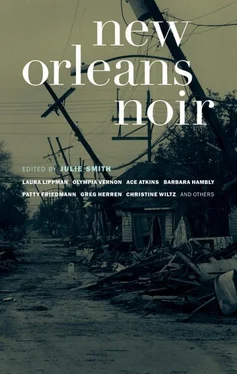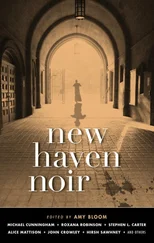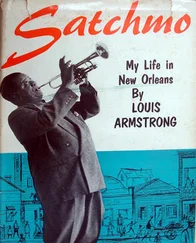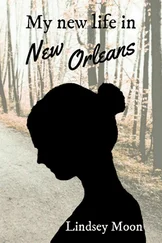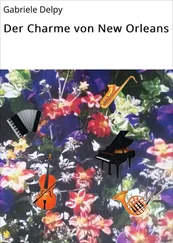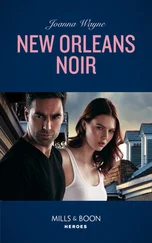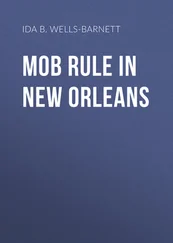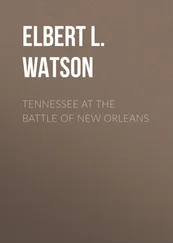To those who took care of us:
Janet and Steve Haedicke, the first week;
Kiley, Molly, and Tory McGuire, the next month;
and Debra Allen, who saved the cats

Thanks have to begin with Tim McLoughlin, who started the Akashic Noir Series with Brooklyn Noir , and Johnny Temple, who’s turned it into a cultural phenomenon; and then move quickly to the seventeen brilliant authors who agreed to participate in this one. Working with all of you has been a joy.
And so many others helped in so many ways: Laura Lippman, Vicky Bijur, David Simon, Denelle Cowart, Chris Wiltz, Greg Herren, David Spielman, Linda Buczek, Jack Willoughby, Captain Jeff Winn, Paul Willis of the Tennessee Williams Festival, Ron Biava of the New Orleans Public Library, Lee Pryor, and especially Mary Alice Kier and Anna Cottle, who put some serious time in, just as a favor. My most heartfelt thanks to all. Plus a second thank you to Johnny Temple for so generously sharing in our recovery.
Introduction
Writing underwater
Before Hurricane Katrina, New Orleanians used to joke about not really being a part of America, being, in fact, a tiny Third World country unto ourselves. And proud of it , we used to say.
The layers of irony in that idea become clearer — and more numerous — with each day that passes since our city was inundated and, well... pretty much leveled, except for the skinny strip along the river where we’re all hunkered now. (At least those of us who aren’t still trying to get home from Houston or haven’t packed up and moved to North Carolina.)
The Bubble, we call it, or the Isle of Denial, but some days the denial just doesn’t work and neither does the Prozac, and we get all liquid in the eyeballs and have to pull ourselves together.
Little more than a year after the storm, we’re still floundering, still in shock, still wondering how to write about such a momentous, life-changing, historic, downright biblical tragedy. We’ve lost so much that meant so much, and we’re struggling so desperately to hold onto what is left. How to convey something like that?
Last Christmas, when we were all just barely home, just starting to get our bearings, a librarian at Tulane University told me she’d already bought twenty-five post-Katrina books for her library. “Nonfiction?” I asked.
“Of course,” she said.
She must be up to a hundred by now, but so far as I know, only one post-K novel has been published at this writing. Though I have no doubt hundreds are in the works Everyone is struggling to find a way to tell his or her story, to tell it in such a way that those who didn’t go through this particular bewildering and disorienting loss can understand how it relates to the larger picture, how universal a thing it really is, this destruction and this potential for destruction, this aching misery, this indifference on the part of the rest of the country. Never have so many writers in such a small area become so passionate, yet so desperate, all at the same time. We are at once immobilized by the task and inflamed by it.
So a short story is really the perfect way to stick a toe back in the water. Whether set pre- or post-K (these are the terms we use down here), the stories herein, to my mind, are particularly passionate. Some of the post-K ones will sear your eyeballs. And yet... so will some of the historic ones.
Patty Friedmann’s tale of mean girls at an Uptown private school may well be the most chilling story ever set at a kids’ pajama party. The nineteenth-century yarn by Barbara Hambly and David Fulmer’s “Algiers,” set a century ago, provide ample evidence that, so far as crime is concerned in this French city, plus ça change, plus c’est la même chose . We’ve always had our con artists, our gamblers, our two-bit hustlers, and, God knows, our hookers and femmes fatales. We’d hardly be ourselves without them.
Alas, we also have our racists. Jervey Tervalon offers a peek into the discrimination of the past in his story of two wrangling priests, one a bigot and proud of it . Ted O’Brien also tackles the issue of race — with all its tangles and contradictions — in a twenty-first-century mixed neighborhood.
James Nolan’s wry and wicked “Open Mike” leads us on a careening tour of the underside — both past and present — of that gaudy world known as the French Quarter; the part the tourists haven’t a clue about. Laura Lippman treats us to an insider’s look at the Tremé Mardi Gras, one of the city’s most colorful, while providing so hair-raising a take on masking that it ventures into horror territory.
Before reading Tim McLoughlin’s worldly-wise Irish Channel story, be sure to pour yourself a couple of fingers of Irish whiskey. You’ll need it — especially if you next move on to Olympia Vernon’s unnerving tale of love gone wrong in the University District.
The Lower Ninth Ward, perhaps our most famous neighborhood of late, was always a tough place, but it had its tender side too, its neighborly, gentle, almost maternal side, the side that makes people so desperate to go back no matter what — no matter that it mostly doesn’t even exist anymore. Kalamu ya Salaam skillfully evokes the complexity of its residents’ lives.
Not surprisingly, almost half the writers chose to make their stories contemporary. And it’s a good choice, I think. For this is what we live with now — this is the new New Orleans. This messy, ugly, often violent, confusing, difficult, inconvenient, frustrating post-Katrina world.
In “Muddy Pond,” Maureen Tan wades into a part of the city most of its black and white citizens are only vaguely aware of, and almost never visit — Village de l’Est in New Orleans East, where the church called Mary Queen of Vietnam is the dominant social organization. Unless you count the gangs.
The Masson boys in Thomas Adcock’s “Lawyers’ Tongues” are pure New Orleans — one a prosecutor, the other a petty thief. They’re Gentilly folks who moved up from the nearby St. Bernard project under the watchful eyes of certain Aunt-tees only too eager to see them stumble.
Jeri Cain Rossi’s haunting tale of frustration, despair, and desperation — and heat! — in the very bohemian Bywater will make you long for a refreshing dip. Preferably not in the river.
A little known fact: Lakeview, just the other side of the now-famous 17th Street Canal and once the home of well-off white folks, took on just as much water as the Ninth Ward. But since the houses were newer and stronger and mostly brick, it fared better. So unlike the Lower Ninth, it now looks more like a Western ghost town than a field where the gods played pick-up sticks. “Night Taxi,” Christine Wiltz’s angry, gritty portrayal of latter-day carpetbagging mines those spooky ruins for nasty truths.
Several years ago, the Utne Reader named the Lower Garden District “the hippest neighborhood in America.” So naturally plenty of gay people live there and some, just as naturally, have lovers’ quarrels. Let’s hope most are resolved more peacefully than the one in Greg Herren’s “Annunciation Shotgun,” a classic noir nightmare in which stepping just over the line opens the narrator’s personal Pandora’s box.
My own story of looting in the Garden District proper (several feet and a planet away from the Lower Garden District) seeks to remind us that we New Orleanians have no monopoly on taking advantage of our fellow humans.
Читать дальше
